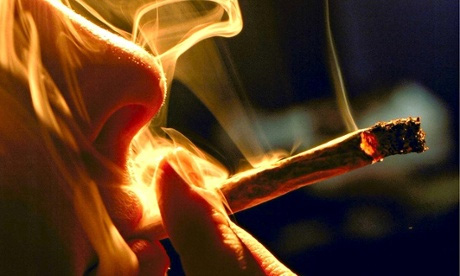The Guardian story: ‘The drugs do work: top Australian musicians discuss their illicit drug use’, July 2014
A comment piece for The Guardian’s Australian culture blog, published the day after my book Talking Smack was released. The full story appears below.
The drugs do work: top Australian musicians discuss their illicit drug use
In a new book exploring the relationship between musicians and illicit substances, some of Australia’s most successful artists say there’s more to the story than the usual chorus of condemnation
“Sex, drugs and rock ‘n’ roll” is a well-worn cliche that music fans and journalists use as shorthand for “someone else’s job is more fun than mine”. We fantasise about the wild excesses and rampant hedonism experienced by the world’s top performing artists on a regular basis.
And yet, in writing my book Talking Smack: Honest Conversations About Drugs, I discovered there is a kernel of truth to the cliche. Some of Australia’s most successful musicians – including Paul Kelly, Tina Arena, Steve Kilbey, Phil Jamieson and Holly Throsby – openly admit that the use of both legal and illegal drugs has contributed to some of their creative achievements and personal insights.
Of the 14 musicians I interviewed, all of them have had contact with illicit drugs at some point in their lives. The preference for substances varied widely, from cannabis and MDMA to methamphetamine and heroin. I discovered that the reasons individuals are drawn to the risky business of ingesting, inhaling, snorting or injecting foreign substances are complex and nuanced.
Although stories of drug abuse, overdose and addiction have been part of the popular musical lexicon for decades, while working on Talking Smack I found an important distinction to be made: that despite the noisy negatives often associated with drugs at all levels of society, many of my interviewees had positive experiences. This is a rarely-acknowledged truth for many Australians, regardless of whether or not they’re employed in the creative industries.
Illicit drug use in Australia is often rendered as a black-and-white battleground: you’re either a drug user and thus looked down upon as a loser and a criminal, or you’re an anti-drugs totem of purity. My goal was to explore the shades of grey by talking to public figures who know what they’re talking about when it comes to a tricky topic, and where rational, expert voices are sorely lacking.
Usually the discussion is dominated by politicians, police and sensationalist media outlets who stand together in condemnation of anyone who would dare consume a drug that isn’t alcohol, caffeine, nicotine or a prescribed medication.
What I found during many hours of face-to-face conversations about this topic with such distinctly different musicians is that there is no simple story when it comes to drugs. Some people are early bloomers, and try substances in their teens; others, like myself, avoid the matter entirely until their mid-20s, or later. Some, like Gotye, choose to abstain completely. Drug tastes vary greatly between individuals; the chemicals that resonate with one person may repel the next.
For some of these musicians, subjective experiences and sensations felt while under the influence had a powerful effect on songwriting. Steve Kilbey told me that The Church’s 1992 album Priest=Aura was an attempt to recreate the feeling of heroin through music, soon after he had started using the drug.
“That was the honeymoon,” said Kilbey. “You can hear it’s working. You can hear that I achieved that thing. And then it went downhill after that. For 10 or 11 years, I still made records [on heroin]. But I struggled a bit. When the gear arrived, I’d get so stoned I couldn’t work.”
Managing these motivations is a struggle met by many creative people, whether their task is to play an instrument, paint a canvas or scribble words. Sydney hip-hop artist Urthboy is unsure whether smoking cannabis while writing lyrics is an effective way to tap into creativity: “I’ve never really had any clear proof of that; you can’t say that’s a fact when you write really good stuff without smoking,” he said.
“To ever suggest that weed is an essential ingredient in that process is almost to give up on your own abilities.”
For Melbourne pop artist Bertie Blackman – who has struggled with alcoholism, depression and anxiety – abstinence is a matter of prioritising her mental health. “Recreational drugs in a safe environment are cool,” she told me. “I’m around it occasionally, and I don’t frown on it. I mean, they exist. It’s just that I make the choice now to not partake, because I know that, for me and my mental health, it’s not good.”
That’s the bottom line for many Australians: an individual choosing whether or not to use a particular drug for an intended benefit, whether that’s buying a bottle of wine or a gram of cocaine. The illegality of the latter choice rarely comes into account. Humans are clever: where there’s a will to snort or smoke something, there’s a way.
Almost all of my interviewees agreed that the prohibitionist “war on drugs” is failed policy that has had little to no effect on their overall consumption. As Steve Kilbey of The Church told me:
“I think it’s becoming obvious to people that the whole [war] about drugs was a fucking lie,” Kilbey said. “It’s like fucking burning witches at the stake, or having slaves. I believe one day people will, in some enlightened time, look back at this and say, ‘You know they used to throw people in jail for five years for smoking marijuana?’ Why? What the fuck have you done except disobey some fuckwit in authority? That’s all it is. People are realising that taking drugs is a medical issue; it’s a social issue. It’s nothing to do with the law.”
Talking Smack: Honest Conversations About Drugs by Andrew McMillen is published by University of Queensland Press.
